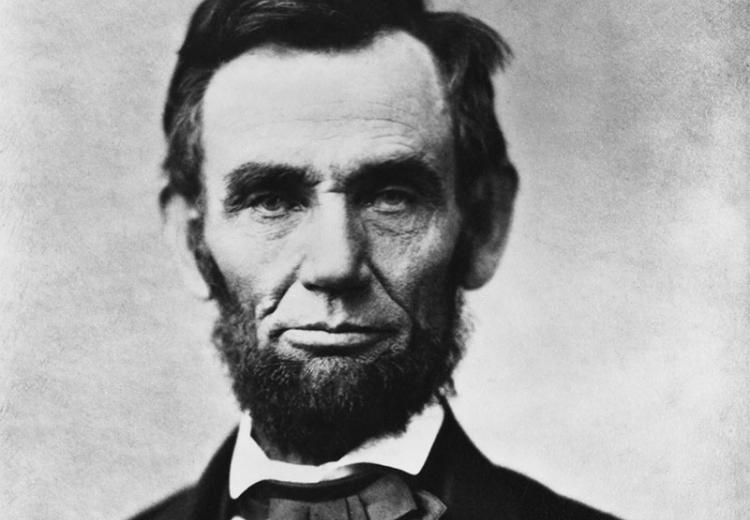Abraham Lincoln on the American Union: “A Word Fitly Spoken”

Abraham Lincoln, the sixteenth President of the United States.
This unit explores the political thought of Abraham Lincoln on the subject of American union. For him, the union was not just a structure to govern the national interests of American states; it also represented a consensus about the future of freedom in America—a future where slavery would eventually be eliminated and liberty protected as the birthright of every human being. Students will examine Lincoln's three most famous speeches—the Gettysburg Address and the First and Second Inaugural Addresses—in addition to a little known fragment on the Constitution, union, and liberty to see what they say regarding the significance of union to the prospects for American self-government.
Although Lincoln did not attend high school or college, he possessed a logical and inquisitive mind that found clarity in working out legal and political problems on paper. One fragment he wrote after the 1860 presidential election addressed how the Constitution and union were informed by the ideals of the Declaration of Independence. Lincoln wrote that while America's prosperity was dependent upon the union of the states, "the primary cause" was the principle of "Liberty to all." He believed this central ideal of free government embraced all human beings, and concluded that the American revolution would not have succeeded if its goal was "a mere change of masters." For Lincoln, union meant a particular kind of government of the states, one whose equality principle "clears the path for all—gives hope to all—and, by consequence, enterprize, and industry to all."
As president of the United States, Lincoln used his First and Second Inaugural Addresses to explore the meaning of the American union in the face of a divided country. Upon assuming the presidency for the first time, he spoke at length about the nature of union, why secession was antithetical to self-government, and how the federal constitution imposed a duty upon him to defend the union of the states from rebellious citizens. When he was reelected four years later, and as the Civil War drew to a close, Lincoln transcended both Northern triumphalism and Southern defiance by offering a providential reading of the war and emancipation in hopes of reuniting the country.
In his most famous speech, delivered upon the dedication of a national cemetery at the battlefield in Gettysburg, Pennsylvania, Lincoln gave a brief but profound meditation on the meaning of the Civil War and American union. With the Emancipation Proclamation as a new and pivotal development of the federal war effort, Lincoln sought to explain why the war to preserve the Union had to become a war to secure the freedom of former slaves. The nation would need to experience "a new birth of freedom" so that "government of the people, by the people, for the people, shall not perish from the earth."
Upon completing this unit, students should have a better understanding of why Lincoln revered the union of the American states as "the last best, hope of earth."
Guiding Questions
How did Lincoln understand the principles of the Declaration of Independence as the goal of the American union?
How did Lincoln defend the Union from states seeking to leave or "secede" from the Union?
How did Lincoln see the Civil War as an opportunity for the nation to bring forth a "new birth of freedom" (or liberty for all), and why was this necessary for the survival of American self-government?
How did Lincoln seek to restore the American union as the Civil War drew to a close?
Learning Objectives
Explain what Lincoln thought was the chief cause of America's prosperity.
Explain the principles of human equality and government by consent expressed in the Declaration of Independence.
Show how the principles of the Declaration represent the aim of the American union and constitution.
Explain provisions of the federal constitution that Lincoln believed empowered him to defend the American union from attempts at secession.
Articulate why Lincoln thought he had a constitutional obligation as president to preserve the Union from attempts at secession.
Explain why some Northern Democrats criticized Lincoln's Gettysburg Address.
Articulate the connection Lincoln made between emancipation and preserving the Union.
Describe the "unfinished task" that Lincoln presented to the American people at Gettysburg.
Describe the historical context for Lincoln's second inauguration as president.
